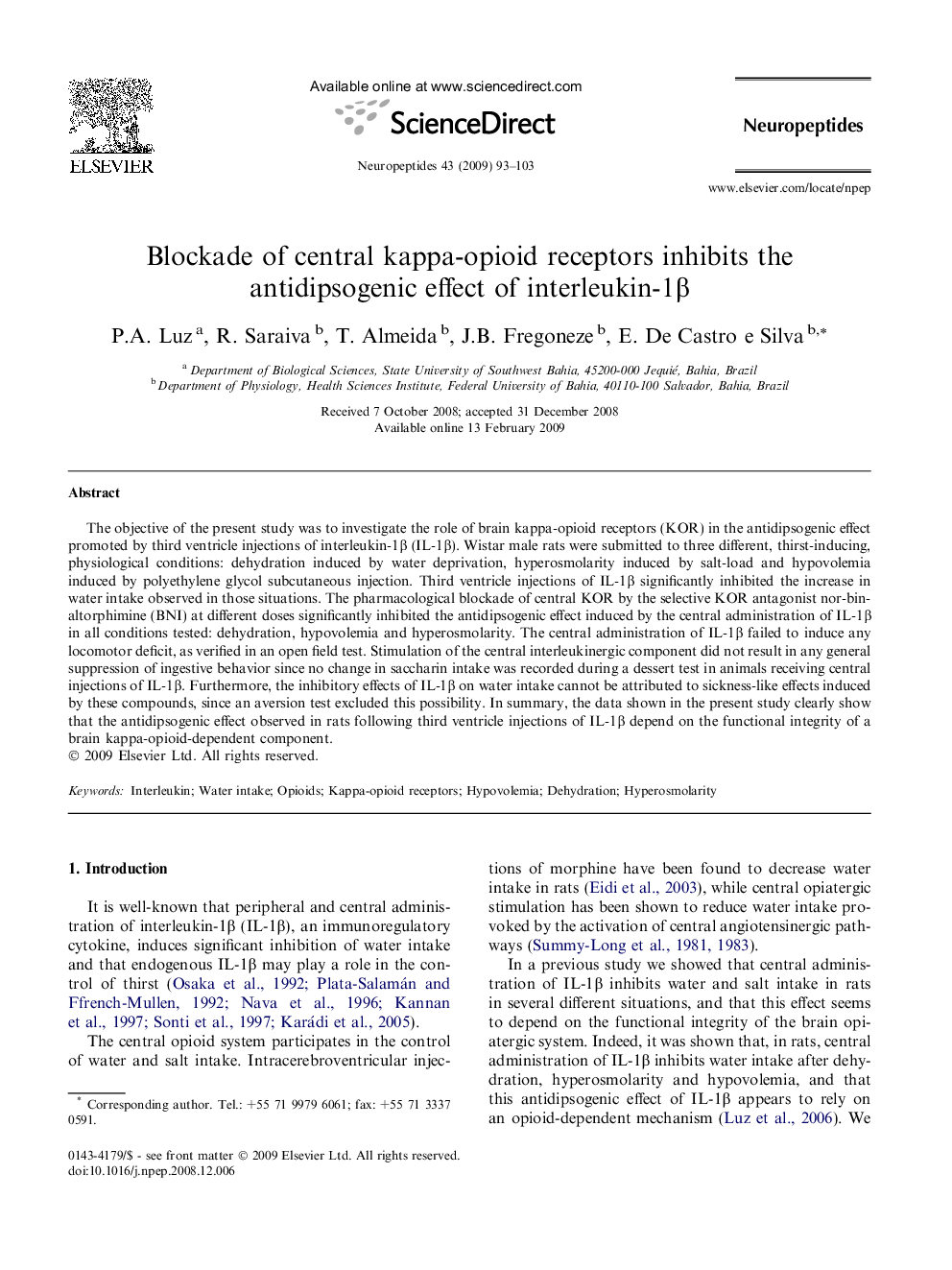| Article ID | Journal | Published Year | Pages | File Type |
|---|---|---|---|---|
| 2808581 | Neuropeptides | 2009 | 11 Pages |
The objective of the present study was to investigate the role of brain kappa-opioid receptors (KOR) in the antidipsogenic effect promoted by third ventricle injections of interleukin-1β (IL-1β). Wistar male rats were submitted to three different, thirst-inducing, physiological conditions: dehydration induced by water deprivation, hyperosmolarity induced by salt-load and hypovolemia induced by polyethylene glycol subcutaneous injection. Third ventricle injections of IL-1β significantly inhibited the increase in water intake observed in those situations. The pharmacological blockade of central KOR by the selective KOR antagonist nor-binaltorphimine (BNI) at different doses significantly inhibited the antidipsogenic effect induced by the central administration of IL-1β in all conditions tested: dehydration, hypovolemia and hyperosmolarity. The central administration of IL-1β failed to induce any locomotor deficit, as verified in an open field test. Stimulation of the central interleukinergic component did not result in any general suppression of ingestive behavior since no change in saccharin intake was recorded during a dessert test in animals receiving central injections of IL-1β. Furthermore, the inhibitory effects of IL-1β on water intake cannot be attributed to sickness-like effects induced by these compounds, since an aversion test excluded this possibility. In summary, the data shown in the present study clearly show that the antidipsogenic effect observed in rats following third ventricle injections of IL-1β depend on the functional integrity of a brain kappa-opioid-dependent component.
